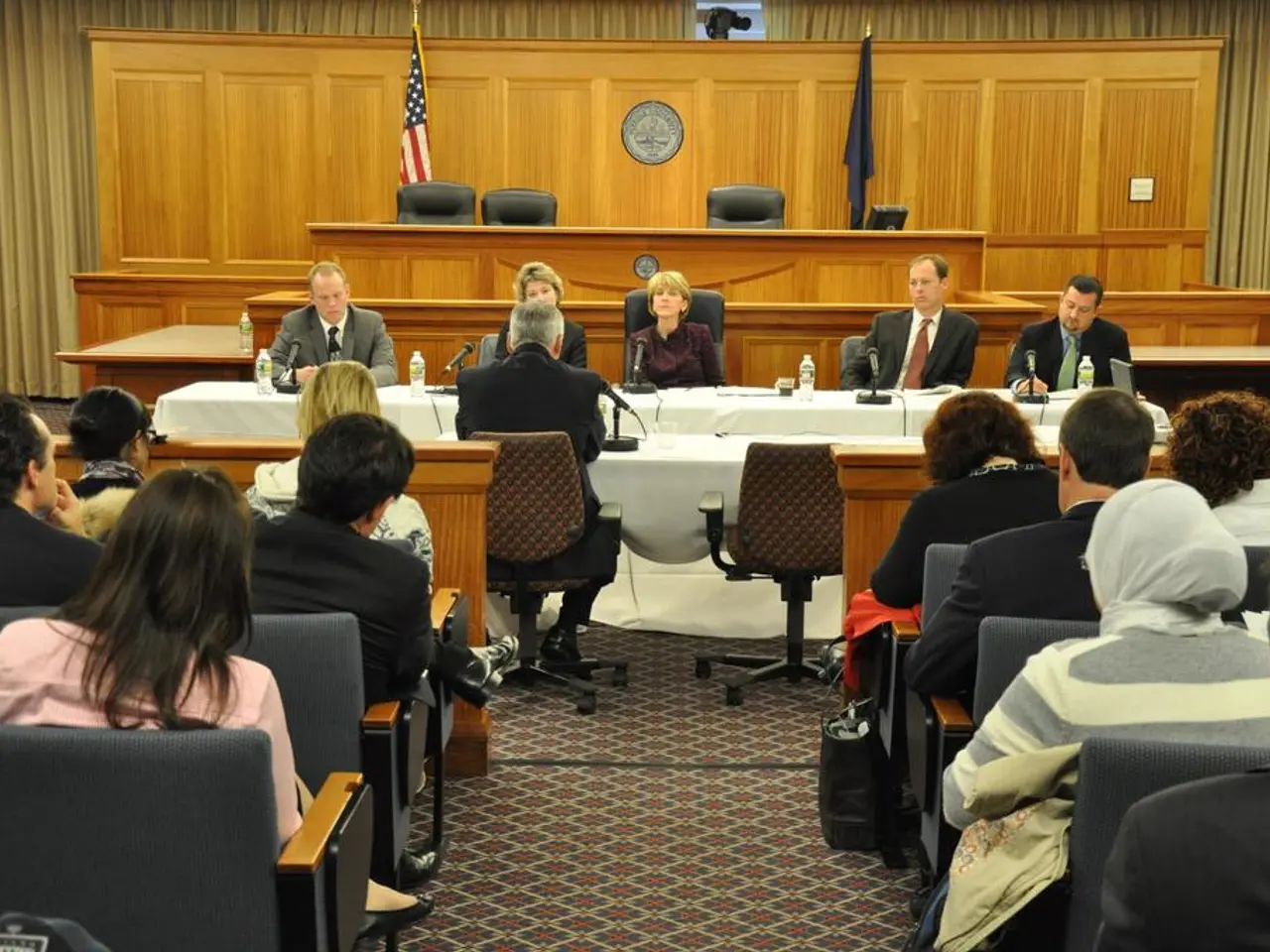Mike Waltz, nominated to become Ambassador to the United Nations under Trump's administration, faces intense questioning over the Signal chat controversy
In the recent Senate confirmation hearing for Michael Waltz as U.S. Ambassador to the United Nations, the spotlight was on the former National Security Adviser's use of the encrypted Signal app and an incident involving a journalist inadvertently added to a sensitive group chat.
During his tenure as President Trump’s national security adviser, Waltz invited Jeffrey Goldberg, editor in chief of The Atlantic, to a Signal group chat that was meant to be private among officials such as Defense Secretary Pete Hegseth, Vice President JD Vance, and Secretary of State Marco Rubio. This chat discussed sensitive operational details regarding a planned military strike against Houthi rebels in Yemen, raising security concerns due to Signal's status as a commercially available app, despite its end-to-end encryption.
Waltz testified that no classified information was shared in the chat and that the use of Signal followed cybersecurity recommendations, particularly the Biden-era Cybersecurity Infrastructure Security Agency (CISA) guidance, which advocated for encrypted apps like Signal for secure communications. However, Democratic senators pressed Waltz during the hearing, suggesting that even if the information wasn’t officially classified, it was still very sensitive and should not have been shared on such a platform, especially with a journalist inadvertently added.
Waltz, for the most part, deflected questions about the incident, refused to express regret publicly, and emphasized compliance with the recommended encryption practices. The controversy generated enough criticism that it contributed to Waltz stepping down as national security adviser in May 2025, two months before his Senate hearing for the ambassador position. The episode was a major point of scrutiny during the confirmation process, reflecting concerns about operational security and appropriate communication channels for sensitive government information.
Meanwhile, Senator Jeanne Shaheen expressed her concerns about the U.S.'s relationship with the United Nations and the potential for international bodies to become increasingly dependent on China. Shaheen, the ranking Democrat on the Senate Foreign Relations Committee, believes that the Trump administration has been ceding ground to China by slashing the U.S. foreign aid budget and other soft power tools. She also warns that if the U.S. walks away from international bodies like the U.N., international bodies may become increasingly dependent on China.
The controversy surrounding Waltz's use of the Signal app did not go unchallenged. Senator Cory Booker criticized Waltz for not taking responsibility and blaming Biden. Despite facing criticism, Republicans on the Senate Foreign Relations Committee praised Waltz, and Chairman Jim Risch of Idaho called for radical transparency and genuine reform at the United Nations.
Sources: [1] https://www.theatlantic.com/politics/archive/2025/05/michael-waltz-signal-group-chat-yemen/629156/ [2] https://www.nbcnews.com/politics/congress/exclusive-michael-waltz-resigns-national-security-adviser-job-n1256376 [3] https://www.washingtonpost.com/politics/2025/05/20/michael-waltz-resigns-national-security-adviser-job/
- The controversy surrounding Michael Waltz's use of the Signal app, during his tenure as President Trump's national security adviser, has sparked a debate on policy-and-legislation concerning the appropriate use of commercially available encrypted apps for sensitive government communications.
- Senator Cory Booker questioned Waltz's accountability in the Signal chat controversy, suggesting that the general-news media, including a journalist inadvertently added to a sensitive group chat, should be excluded from such communications.






